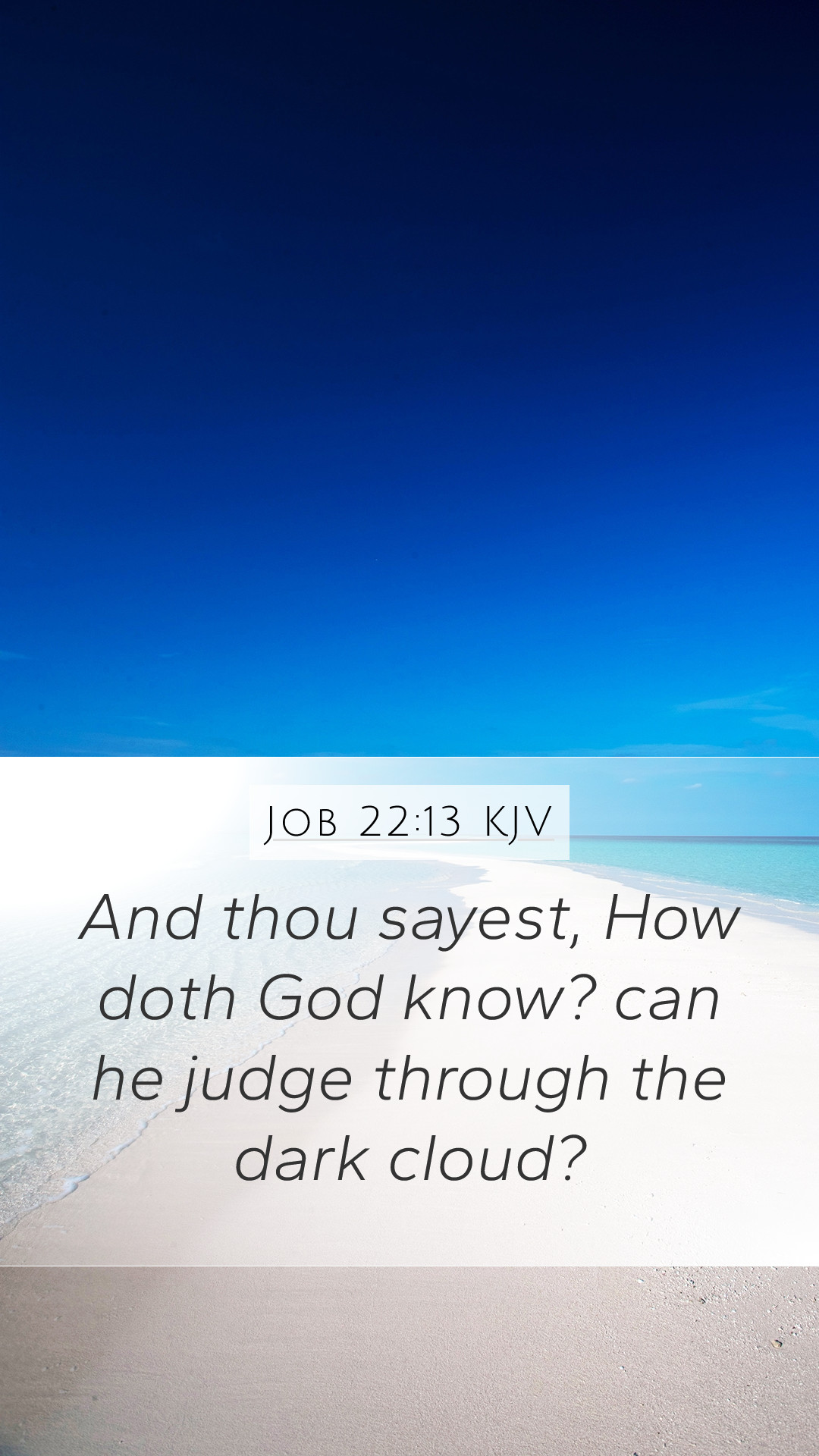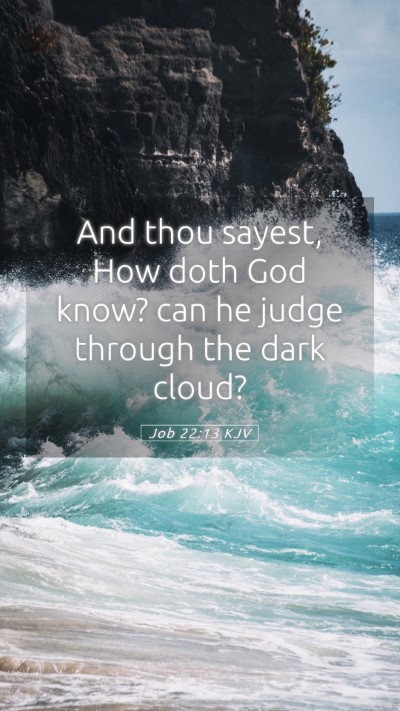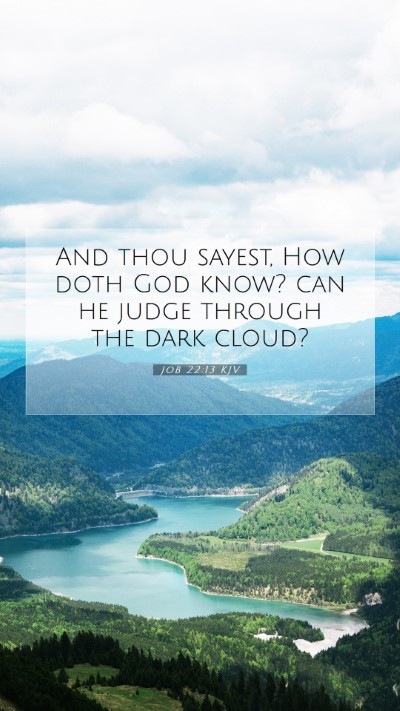Old Testament
Genesis Exodus Leviticus Numbers Deuteronomy Joshua Judges Ruth 1 Samuel 2 Samuel 1 Kings 2 Kings 1 Chronicles 2 Chronicles Ezra Nehemiah Esther Job Psalms Proverbs Ecclesiastes Song of Solomon Isaiah Jeremiah Lamentations Ezekiel Daniel Hosea Joel Amos Obadiah Jonah Micah Nahum Habakkuk Zephaniah Haggai Zechariah MalachiJob 22:13 Meaning
What is the meaning of Job 22:13?
And thou sayest, How doth God know? can he judge through the dark cloud?
Job 22:13 Bible Verse Meaning
Understanding Job 22:13
The verse Job 22:13 states:
"And you say, 'What does God know? Can He judge through the thick darkness?'"
Overview
This verse captures a moment of dialogue in the Book of Job, where the character Eliphaz challenges Job's views of God's omniscience and justice. The context is significant; Job is suffering immensely, and his friends, including Eliphaz, have come to point fingers rather than offer comfort.
Bible Verse Meanings
The meanings of Bible verses can vary based on interpretations, but several key insights emerge from this passage:
- Questioning God: Eliphaz is essentially accusing Job of questioning God's knowledge and judgment, suggesting a lack of faith in divine oversight.
- Darkness and Judgment: The reference to "thick darkness" symbolizes a lack of understanding and insight, implying that God's actions may not always be clear to human beings.
Bible Verse Interpretations
Diverse interpretations can be gleaned from various public domain commentaries:
- Matthew Henry: He suggests that Eliphaz's assertion reflects a misunderstanding of God's omnipresence and the depth of His wisdom. He argues that God's judgment is not restricted by human limitations.
- Albert Barnes: Barnes emphasizes the idea that God is aware of all human actions and thoughts, thereby affirming that nothing escapes God's sight—even our doubts and accusations.
- Adam Clarke: Clarke interprets the verse as a critical point of human arrogance, showcasing how individuals might presume to understand God’s ways while ignoring their own limitations.
Bible Verse Understanding
The understanding of the verse can be enriched by examining the historical and cultural context:
- Cultural Context: In the ancient world, individuals often affiliated personal misfortunes with divine displeasure. Job's companions illustrate how this misconception leads to misguided dialogues about suffering.
- Theological Significance: The chapter invites believers to reflect on their faith in divine justice, especially during trials when understanding may seem elusive.
Scripture Analysis
Analyzing Job 22:13 with accompanying scriptures enhances its meaning:
- Job 10:2-3: Job himself charges God with wrongdoing, illustrating the struggle between human perspective and divine wisdom.
- Psalm 139:7-12: These verses speak to God's omnipresence, reinforcing the idea that no darkness can obscure God's knowledge.
- Isaiah 55:8-9: Here, God declares that His ways are higher than our ways, showcasing the vast difference between human understanding and divine perspective.
Bible Study Insights
These insights can be effectively utilized in various Bible study contexts:
- Bible Study Groups: Engage group members in discussions about how misunderstandings can affect faith.
- Online Bible Study: Use the verse as a focal point for lessons on trusting in God amidst human reasoning.
- Bible Study Tools: Introduce commentaries to enhance understanding of complex passages.
Meaning of Bible Verses Applied to Daily Life
Job 22:13 serves as a reminder of the importance of faith during trials:
- When facing suffering, it is easy to question God’s knowledge and intentions. This verse challenges us to trust in God’s understanding, even when we cannot see the full picture.
- With the knowledge of God's omniscience, we are encouraged to approach challenges with humility, recognizing our limited perspective.
Conclusion
Job 22:13 reveals a crucial aspect of faith—trusting in God's wisdom beyond human comprehension. By studying this verse through various lenses and commentaries, believers can cultivate a deeper understanding of Scripture and its applications.
Related Bible Cross References
- Job 10:2-3 - Job's lament and accusations against God.
- Psalm 139:7-12 - The omnipresence of God and His intimate knowledge of us.
- Isaiah 55:8-9 - A declaration of God's transcendent understanding over human thought.


